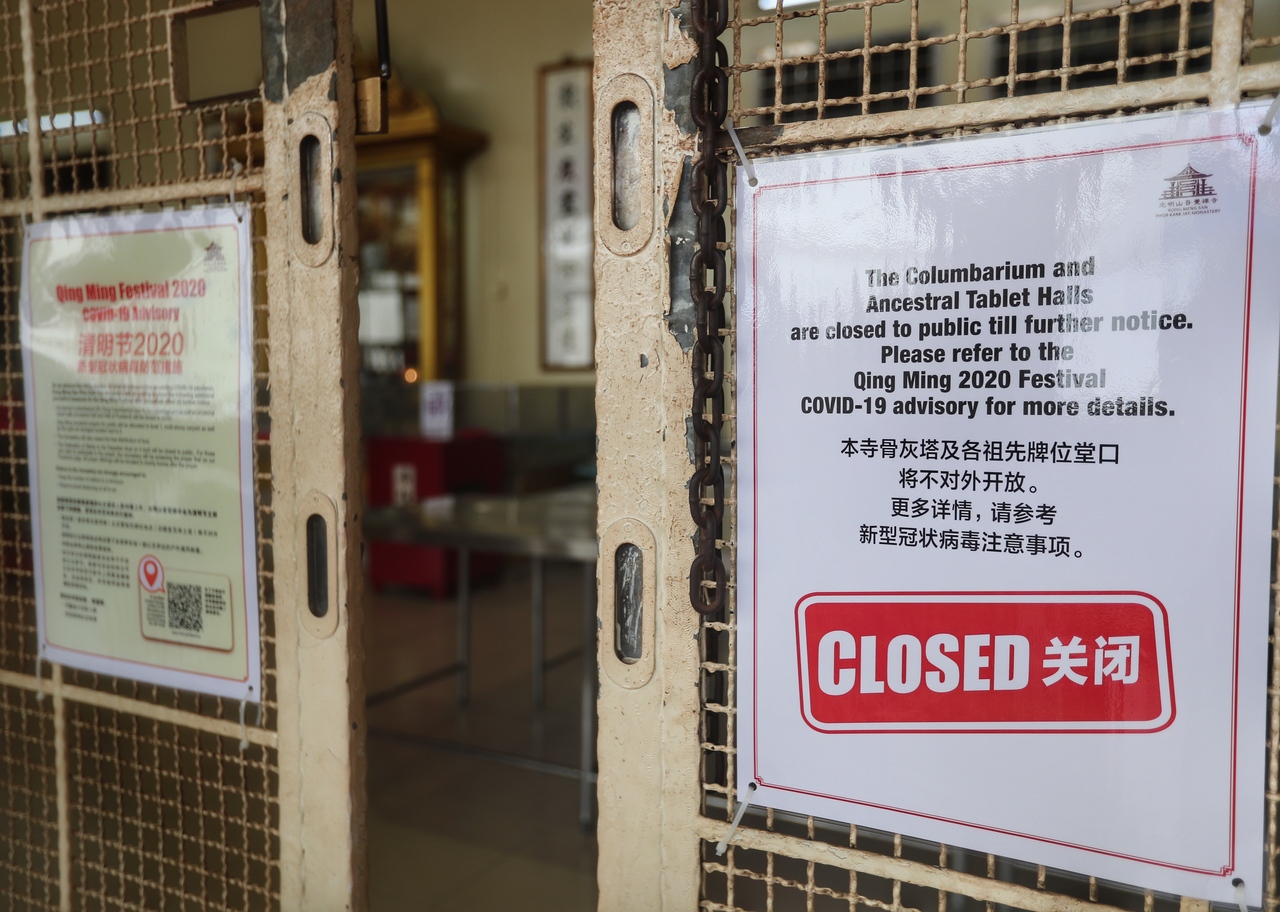Coronavirus: Temples, columbaria devise alternative ways to observe Qing Ming
Sign up now: Get ST's newsletters delivered to your inbox

Kong Meng San Phor Kark See Monastery has introduced an online service for devotees to order ancestral offerings and book a mass chanting conducted by the monks, without having to be physically present at the temple.
ST PHOTO: KELVIN CHNG
SINGAPORE - With the government advocating social distancing to curb further spread of the coronavirus, temples and columbaria are coming up with alternative ways for devotees to observe the upcoming Qing Ming Festival.
Kong Meng San Phor Kark See Monastery, for example, has introduced an online service making it possible for devotees to order ancestral offerings and book a mass chanting conducted by the monks, without having to be physically present at the temple.
The public can go to Awareness Place's website to buy an online ancestral offering bundle, which includes flowers, candles, fruits and other offerings for $48. The food in the bundle will be donated to charity.
"In this current global situation, the online service is not meant to replace traditional practices but is just an alternative option for devotees so they can avoid large crowds," said a spokesman for Kong Meng San.
Since the online service was launched on Tuesday (March 17), the monastery has seen a take-up rate of 30 per cent. Of the three available dates for mass chanting, April 4 has been fully booked, while devotees can still make bookings for March 28 and April 10.
The monastery will also be streaming the Dedication of Merits to the Departed ritual live on its Facebook page on April 4, as the rite will be closed to the public.
Its columbaria and ancestral tablet halls will also be closed to the public. Instead, devotees will be able to conduct prayers on the ground floor of its multi-storey carpark and open-air tentages that have been set up nearby.
Kong Meng San typically sees about 300,000 devotees visiting its premises for the Qing Ming Festival, with up to 50,000 visitors a day during peak periods.
In addition to these measures, Kong Meng San, the Singapore Buddhist Federation (SBF), and Taoist Federation have also urged the public, especially the elderly and those from vulnerable groups, to avoid observance of the Qing Ming Festival in temples and columbaria.
Devotees who still wish to visit the temples or columbaria for ancestral offerings and prayers should do so during off-peak periods and in small groups, they added.
Meanwhile, Singapore Kwong Wai Siew Peck San Theng columbarium announced on Thursday that ancestral prayers at its premises will not be allowed on weekends and public holidays between March 21 and April 19.
The public may only offer prayers on site on weekdays from 8am to 6pm.
The columbarium's general manager, Mr Liu Khee Fang, said the closures were decided to avoid large numbers of devotees congregating at the premises. Last year, between 50,000 and 60,000 devotees visited the columbarium during Qing Ming Festival.
Sales manager Bryan Wong, 56, who visits the columbarium with his extended family of about 30 members every year for the festival, said they will be gathering in smaller groups this year.
"It's one of the two family reunions we have each year, (the other is) Lunar New Year, but with this situation, we are going to 'decentralise' our rituals. Each family will go down on their own, instead of all of us gathering together," he added.
Venerable Seck Kwang Phing, president of the Singapore Buddhist Federation, said the public are encouraged to make alternative arrangements to observe Qing Ming Festival during this period.
For example, smaller groups, even just one or two family members, can conduct prayers, or families can consider observing the festival at home.
"These may be different from the usual observations but what matters more is that devotees carry the same mindset of showing gratitude to their ancestors. After all, their health is more important, and I'm sure their ancestors will understand," he added.


